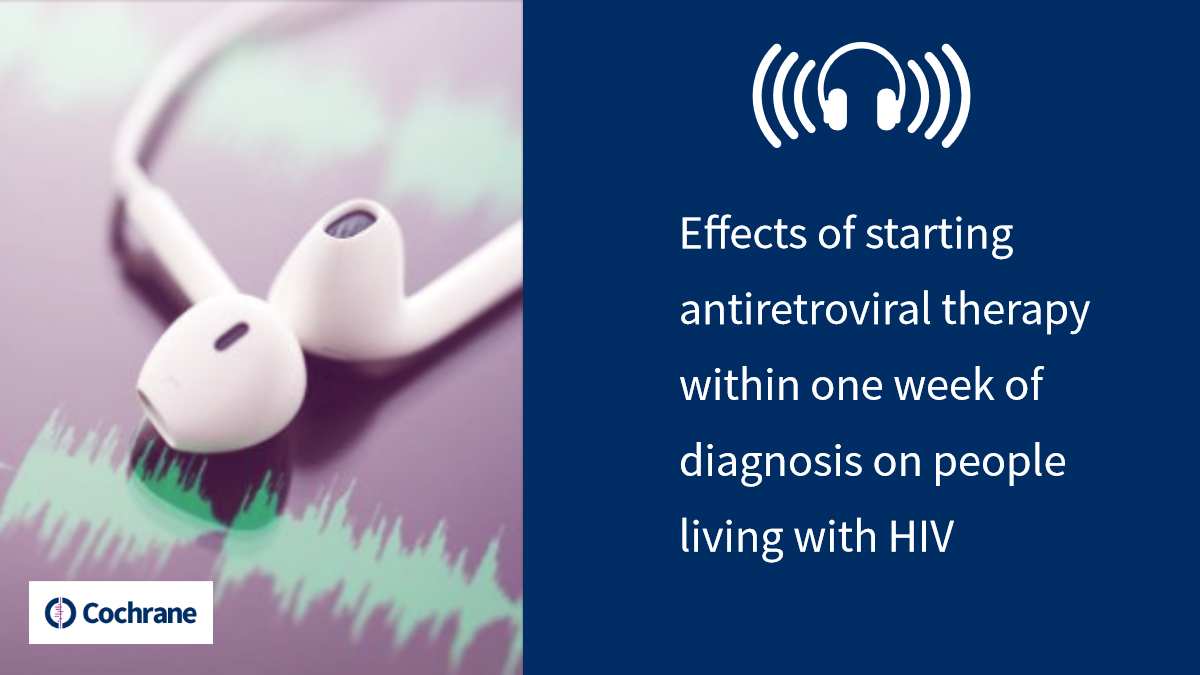
Among the dozens of Cochrane Reviews of various treatments for people with HIV or AIDS, are some that look more at how the treatments should be used, rather than the treatments themselves. One of these examines the timing of the start of treatment, and it was published in June 2019. Lead author, Alberto Mateo from the Liverpool School of Tropical Medicine in the UK, tells us about the evidence base and the findings for this important question.
"When people are diagnosed with HIV, they normally have to attend several clinic visits before they are offered treatment. This is to make sure that they are ready and that it is safe to start the medication. However, attending many clinic visits may be a barrier for people, particularly in low- and middle-income countries, which means that many of them stop being engaged with health services and never actually start the treatment. This makes them at risk of dying sooner than people on the therapy.
One proposed solution is to offer the antiretroviral therapy, or ART, on the same day that the person is diagnosed, or within a few days, what is known as “rapid ART”. We wanted to investigate if doing this could reduce mortality and improve other outcomes, and our review has found that rapid ART probably does increase the number of people initiating the therapy and the number of people with no detectable level of virus in the blood 12 months after diagnosis. We also found that rapid ART may increase the number of people in contact with healthcare services.

However, the evidence currently available does not allow us to say whether rapid ART reduces mortality. Some authors have previously suggested that giving ART so quickly after diagnosis could increase the number of drug adverse effects, and we did not have enough data to analyse this either.
It is important to note that in all the studies included in our review, rapid ART was delivered alongside several other interventions which needed to be in place to make rapid ART possible. These interventions allowed healthcare services to diagnose and assess the physical and psychological health of people with HIV to see if they were ready to start ART.
Looking forward, we hope that future studies will help to consolidate these promising findings, as well as determining which interventions help best to deliver rapid ART.”
